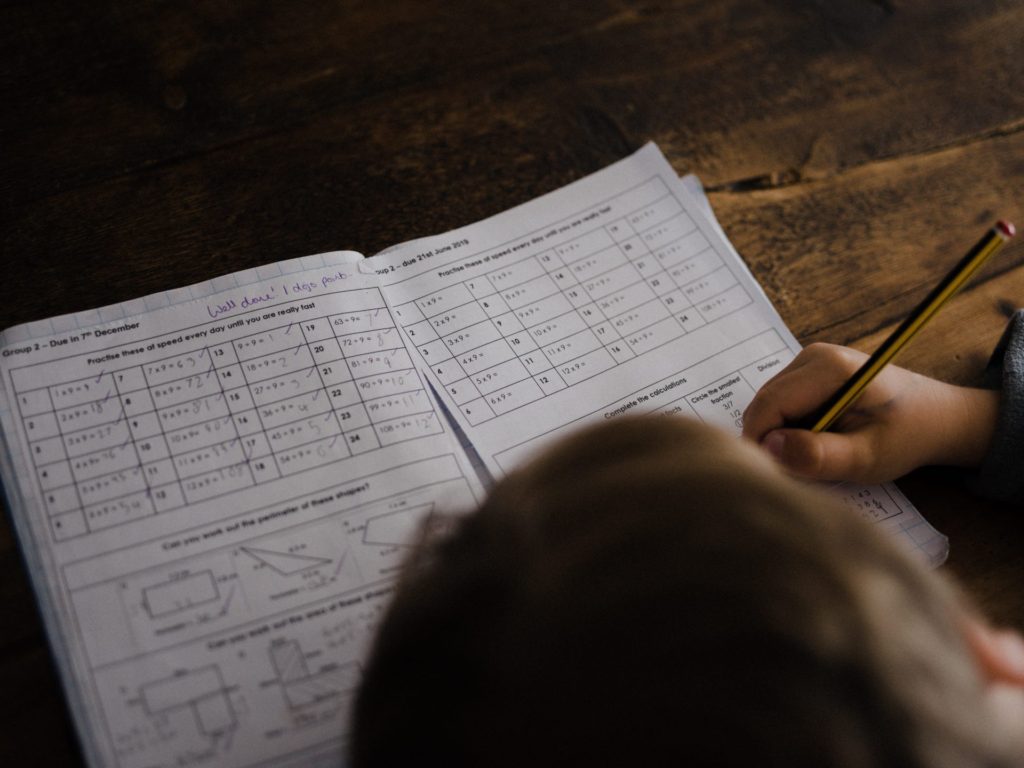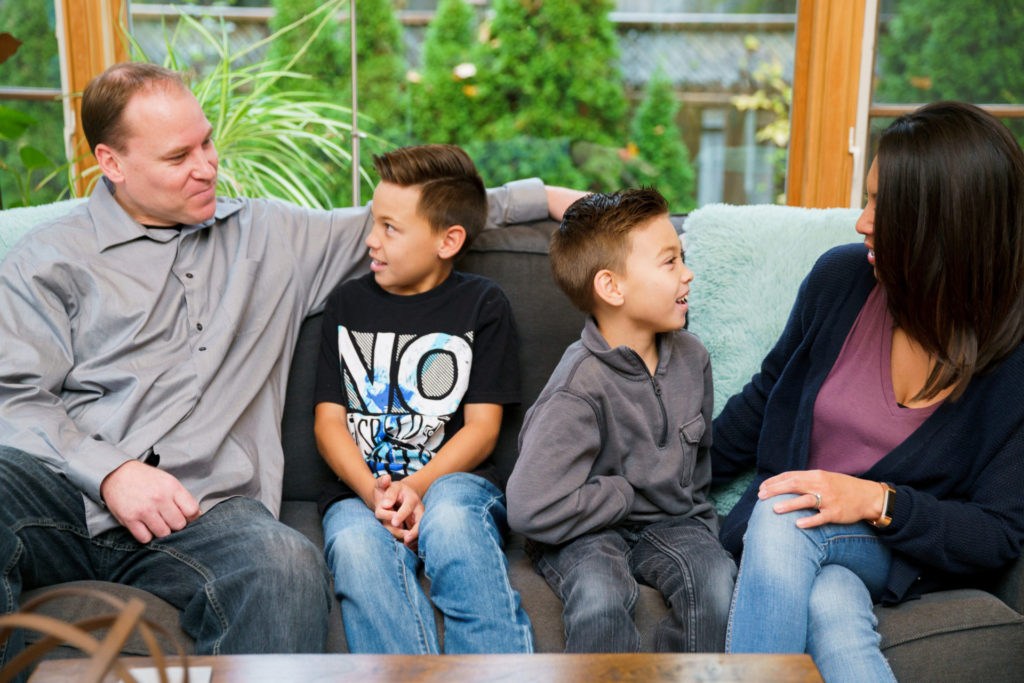South African schools have been open for the new year for up to 3 weeks now. Whether your child has started school for the very first time, or just a new grade, I’m sure the transition has been challenging in one way or another. But did you know that your morning routine – whether good or bad – has a huge impact on how the rest of your day goes?
Just like some of us don’t enjoy going to work in the mornings, the same goes for some children and school. While some will be indignant, there are some who will be indifferent. Nevertheless, as parents, guardians and carers, we know that even the most enthusiastic school-goer is bound to have a wobble at some point in time.
According to an article by Melbourne Child Psychology, having a set routine for your child is extremely important.
Some of the benefits of a set routine are:
- It helps to make your child feel safe
- They know exactly what to expect when they get home
- Routine provides boundaries, expectations and consistency
- It creates a ‘safe space’ for them
- After a long day at school, they can come home and relax when they know what to expect
- It helps them to develop good habits
Now, while having a morning routine is certainly important, what you might not know is that your morning routine actually starts the day before.
So, ensuring that your morning goes well has to be done in two parts: 1) the day before and 2) the morning of.
As a mother to two young school-going children, I can attest to the fact that having a morning routine definitely impacts our morning routine in a positive manner.
Allow me to give a few examples of how this can be done.
1. THE DAY BEFORE
Prep the day before
An old one, but still a good one. The importance of prepping the day before cannot be stressed enough. These are a few things you can do the day before to ensure a smooth start to your morning.
Homework

If your child is at an age where they receive homework, try to make sure that it gets done as soon as they get home from school. It is important to check their books yourself to avoid any nasty surprises as you’re about to walk out of the door the next morning.
Lunches
You’d be surprised at how long it can take to make a basic jam sandwich on a morning when everything seems to be going wrong! Get those lunches packed the evening before, no matter how simple you might think it is. It really saves time.
Set out everyone’s clothes the night before

Use that weather app on your phone. It’s a really helpful tool to plan out your clothes for the following day. Even if your child wears the same school uniform each and every day, you should still help them pack it out the evening before.
How many times have you ruined your own day because things were going perfectly until you decided to change your outfit 3 times and still felt frumpy walking out of the door? So, practice what you preach and set out your own clothes as well.
Bath / shower the night before
And adding to the previous point, whoever takes the kids the school, try to shower the night before. This is an incredible time-saver.
Prep your breakfast station the night before

Get out your cereals, bowls, spoons, cups, toasters – whatever it is you need to make breakfast the following morning. When it’s time to eat (and please try to let your child have a hearty breakfast before you leave) you won’t be spending time looking for a favourite bowl or utensil.
Set the tone
Nine times out of ten, mornings are punctuated with chaos. If your home was in pandemonium that morning, try to counter it in the afternoons, all the way to the evenings, with calmness.
That, dear caregiver, starts with you. If you’re the one picking the kids up from school, make sure that you’ve forgotten all about Amy spilling her Weetbix all over the front of your blouse that morning; or that Andy just remembered that he had a Science assignment due – last week!
Forget all of that and start afresh and calm. Be genuinely interested in finding out about their days and really listen when they speak to you.

Make a conscious effort to not blow your top.
Remember that they’ve been away from home for a good chunk of the day. If the morning was chaos and they return to chaos, you’re not providing a safe and comforting environment for them. Now imagine this chaos goes on for days, weeks or even months.
It doesn’t bode well for a happy home and it’s certainly not a climate in which a child can thrive.
Stick to a routine, as far as possible
As mentioned in the opening paragraphs, you are setting your child at a great advantage by allowing them to have a set routine. Every household is different. Perhaps you go for an evening walk as a family. Or maybe you watch a TV show together each evening. Whatever it is that you do, try to make a habit of it.
A routine not only makes daily life easier, but it also has mental health benefits.
Some other important areas which should definitely be done routinely are:
Bath time
Try to bath them (or have them bath themselves) at the same time each day, or after a certain activity each day.
Even if your daily routines differ on a day-to-day basis so that you’re not able to stick to the same time each day, stick with the same routine on that specific day.
For example, if you have swimming on a Tuesday afternoon, then bath them as soon as you get home on a Tuesday after swimming.
Bedtime

Try to adhere not only to a specific bedtime, but also to a specific bedtime routine. This allows your child to go to sleep calmly, comfortably and with confidence.
‘Waking up’ time
Wake them up at the same time each weekday. If you have a slightly older child, possibly set an alarm in their room. This adds to embedding the routine and also encourages independence.
Talk to your children
Often, we as parents have everything set out in our minds. The only problem is, we don’t necessarily communicate it with our kids. And then we get mad when things don’t quite go according to how we pictured it in our heads. Well, how are they supposed to know if we don’t tell them?
Never underestimate the power of communication with your children. They’re smarter and pick up on more than you think.
For example, when you pick them up from school, tell them: When we get home we’ll have lunch, do homework, you’ll have a shower, have dinner and then you can relax for an hour. And once you’re home, remind them of what’s next on the agenda while they’re busy with the former.
The same applies when reminding them what they’ll be doing the next morning.

While having a set routine is wonderful, there will be deviations.
So, in the same breath, talk to them about the deviations upfront and before the deviations happen (unless completely unexpected, of course). This will help them to calmly adjust to the change in the routine.
2. THE MORNING OF
Ask for their opinions
One of the best ways to alleviate morning grumpiness is to give them choices and ask them for their opinions. If you have a little one who wears civvies, allow them to choose from two outfit options that you’ve pre-picked the night before. It makes them feel like they have a certain degree of control and autonomy over their own lives.
If possible, ask them what they would like for their school lunch the next day or give them two breakfast options to choose from.
Allow them to be participants in their own lives.
Make the morning fun
Try to make it as fun as possible, even when you’re not in a particularly chirpy mood yourself. Play their favourite songs in the car on the way to school. Sing along with them. Race with them to see who gets done first. Put up a small prize as a reward – like an apple or a sip of juice.
Get up early (this means you, as the adult)

No matter how much we plan ahead of time, we all know that things can still go wrong and mess up a morning.
I’m not saying that getting up early will solve all your problems, but it will definitely help to save time when something unexpected happens. For example, you realise that your child has wet the bed during the night. This would mean removing wet bedding and clothes, bathing your child and likely having a child in a bad mood that you would need to deal with – none of which you had planned for.
But, you’d already be showered and dressed, the lunches would be packed, the breakfast station ready and with time to spare. So something like this you’ll be able to handle with ease and still manage to get out of the front door on time with smiling faces.
To conclude, I would like to urge you not to underestimate the importance of a good routine for your child. A good, set routine may give your child confidence, security and a safe space in which to grow. Your child may be calmer, knowing exactly what the day has in store for them and may reduce the likelihood of stress. All in all, having a good routine may allow your child to stay more focussed within the classroom.





